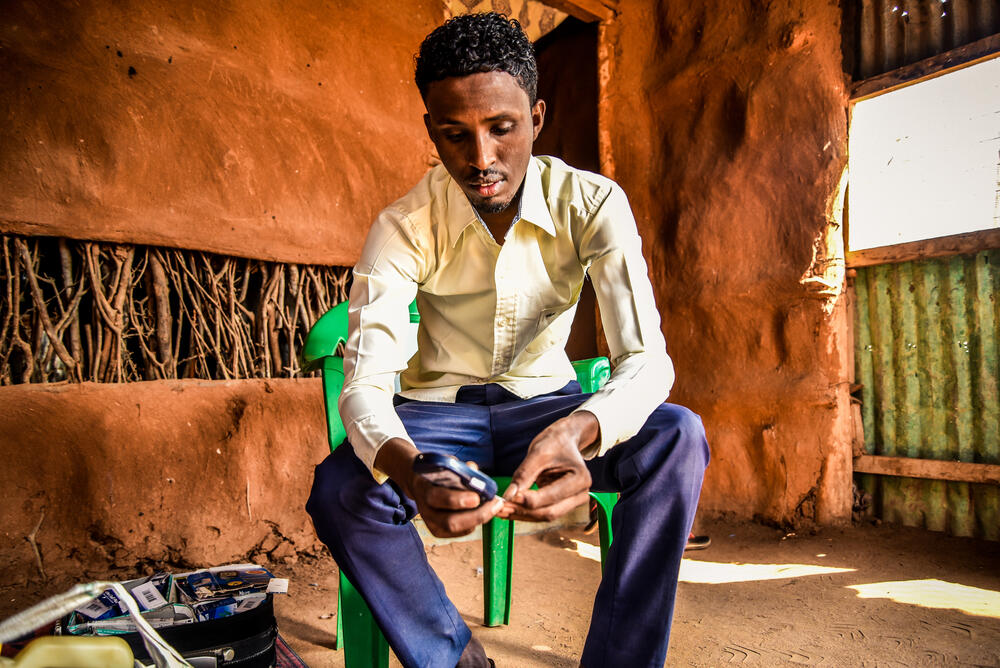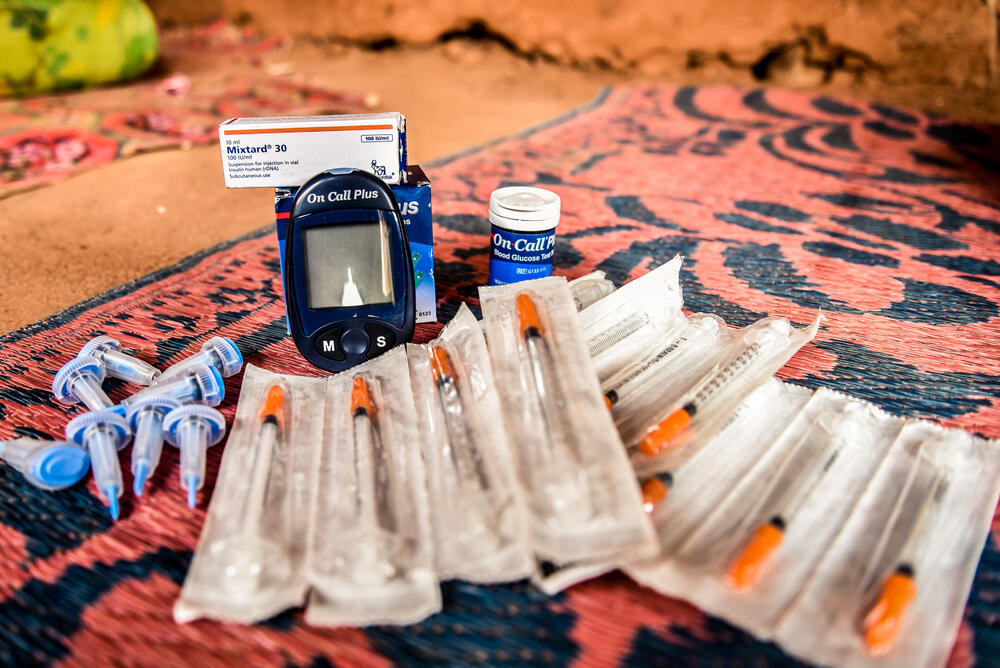Diabetes: The game-changing research that will save refugee lives
An innovative new study by MSF and the University of Geneva has shown that insulin can be stored at up to 37°C – a finding that could have a significant impact on the lives of people living with diabetes in refugee camps and conflict zones.
The team of researchers set out to test the strict storage requirements for insulin that can be extremely difficult to follow in tropical regions, and even more challenging in humanitarian emergencies.
The fridge myth
Diabetes is a chronic disease that occurs when the body cannot produce enough insulin – a hormone that regulates the levels of glucose (sugar) in our blood.
It can require an extremely precise form of daily treatment, where patients have to inject themselves with several doses of insulin based on their diet and physical activity.
If this treatment is not well managed, it can have extremely serious consequences.
However, guidelines for most forms of insulin dictate that the drug should only be stored in a fridge, and once opened, kept below 25°C for up to 42 days. Otherwise, it is claimed that the "thermostability" of the insulin could deteriorate in the heat, and it will no longer work.
These restrictions mean that in places without reliable access to electricity, or where room temperatures regularly exceed 25°C, diabetic patients cannot keep their insulin at home.
Instead, people are forced to travel to a healthcare clinic – sometimes under dangerous conditions – to receive their injections, twice a day, for life.

Get closer to the Frontline
Get the latest MSF stories and updates straight to your inbox.
A result for refugee health
The joint study by Médecins Sans Frontières / Doctors Without Borders (MSF) and the University of Geneva (UNIGE) has now been published in scientific journal PLOS ONE.
The team wanted to test insulin storage in real conditions, mirroring the temperature of a home in Dagahaley refugee camp in northern Kenya which fluctuates between 25°C at night and 37°C during the day.
The researchers then meticulously reproduced these conditions in a laboratory environment, where they tested insulin storage over four weeks which corresponds to the time it usually takes for a diabetic person to finish one vial of insulin. This was tested against “control” vials that were refrigerated.
The study found that there was no difference between to two storage methods. The team were able to demonstrate that there was no impact on either the stability or the efficacy of insulin stored in the home conditions.
“The current pharmaceutical protocol requires insulin vials to be stored between 2° and 8°C until opened, after which most human insulin can be stored at 25°C,” explains Dr Philippa Boulle, an MSF advisor on non-communicable diseases.
“This is obviously an issue in refugee camps in temperatures hotter than this, where families don’t have refrigerators. People with diabetes often have to travel to a hospital every day for their insulin injections, which can prevent them from working or force them to travel long distances."
Calling for change
“These results can serve as a basis for changing diabetes management practices in low-resource settings, since patients won’t have to go to hospital every day for their insulin injections,” explains Dr Boulle.
“Of course, this will have to go hand-in-hand with educating patients, as well as providing support and follow-ups so that people with diabetes can measure their blood sugar levels and inject the right amount of insulin. This will allow people to manage their illness correctly, and more independently.
“The ability to self-inject insulin is a fundamental aspect of diabetes self-management and the ability of people with diabetes to be empowered for their health.”
Watch our video about diabetes from November 2019
MSF is now calling for a consensus statement endorsed by the World Health Organization (WHO) to support the use of locally produced cooling devices for the home storage of insulin in order to dispel the notion that refrigeration is needed in every situation.
We also hope that pharmaceutical corporations will urgently work to update their regulations under the expanded temperature ranges.
It is time to ensure that everyone who needs insulin, regardless of where they live, can access it. For too many people living with diabetes, life is difficult enough.
MSF and access to medicines
One third of the world does not have access to essential medicines.
In the poorest parts of Africa and Asia, this figure rises to half the population. We challenge the high cost of medicines and the absence of treatment for many of the diseases affecting our patients.
Too often we cannot treat patients because the medicines are too expensive, or they are no longer produced. Sometimes, the only drugs we have are highly toxic or ineffective and nobody is looking for a better cure.
As a medical humanitarian organisation, it is fundamentally unacceptable that access to essential medicines is increasingly difficult, particularly for the most common global infectious diseases.

